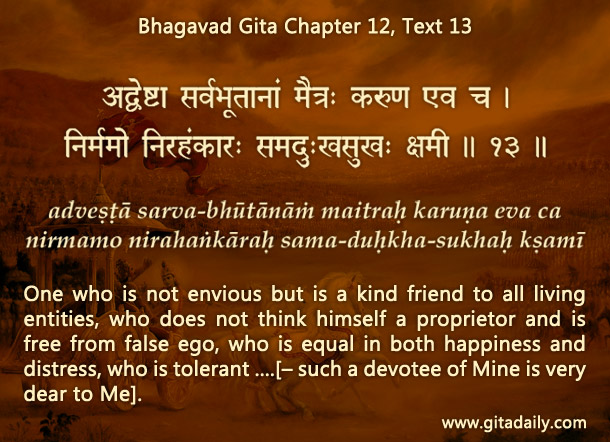Suppose we have mistreated others grievously in the past. We may resolve to never forgive ourselves as a way to make up for those actions.
However, what does making up for our misdeeds require? Externally, offering apologies and reparations. And internally changing our mental impressions, which are the impellers of our various actions. When we mistreated others, that action arose from an underlying psychic impression of unkindness. If we want to make amends and treat others better in the future, we need to replace that impression of unkindness with an impression of kindness. And the only way we can change our inner impressions is by consciously choosing to act kindly. This means that we treat others kindly — and also treat ourselves kindly.
Can’t we be kind toward others and harsh toward ourselves? Possible briefly, but not sustainably. Why not? Because our habitual actions are determined less by our conscious intentions and more by our subconscious impressions. When we remain unforgiving toward ourselves, we are acting unkindly toward ourselves, thereby reinforcing the inner impression of unkindness. And because our mind dwells much more on ourselves than it does on others, our unkindness toward ourselves will form stronger impressions than our kindness toward others. Over time, these impressions of unkindness will overwhelm the impressions of kindness and impel us to act unkindly toward others too.
To sustainably change ourselves, kindness has to begin at home: we need to forgive ourselves. Pertinently, the Bhagavad-gita (12.13) urges us to be a kind friend toward everyone, wherein everyone includes us too.
One-sentence summary:
When we refuse to forgive ourselves for our past misdeeds, we are unwittingly trying to make up for our past unkindness toward others with our present unkindness toward ourselves; but the only sustainable way to make up for unkindness is by kindness, toward others and toward ourselves too.
Think it over:
- What does making up for our misdeeds require?
- Why can’t we be kind toward others and harsh toward ourselves?
- In which area of your life do you need to forgive yourself? What is holding you back? How can you remove that obstacle?
***
12.13: One who is not envious but is a kind friend to all living entities, who does not think himself a proprietor and is free from false ego, who is equal in both happiness and distress – such a devotee of Mine is very dear to Me.
To know more about this verse, please click on the image


GOD guide you to avoid misdeeds